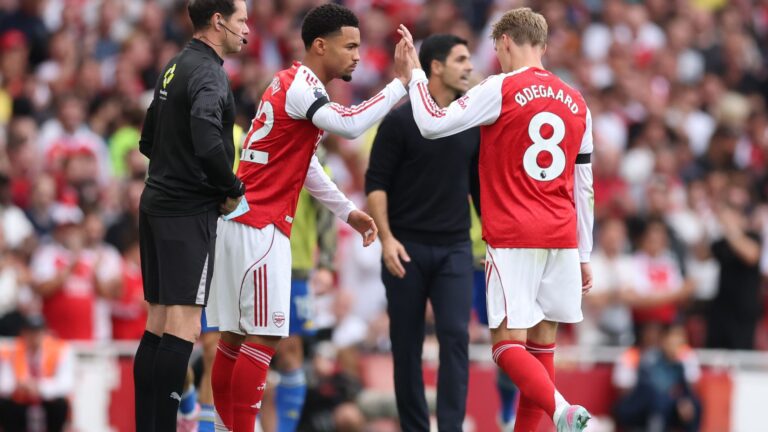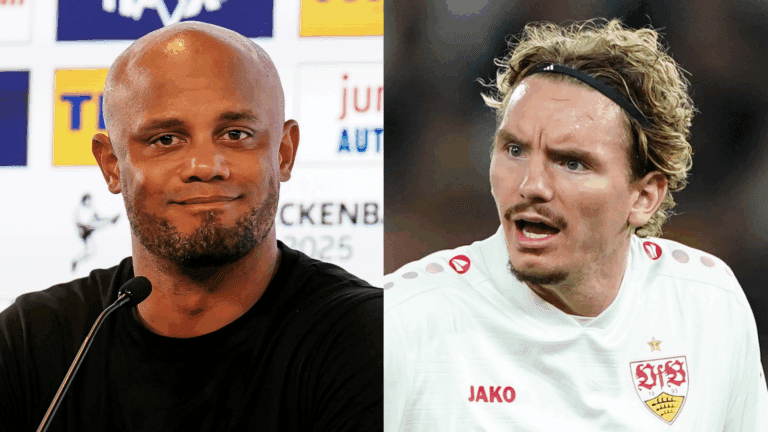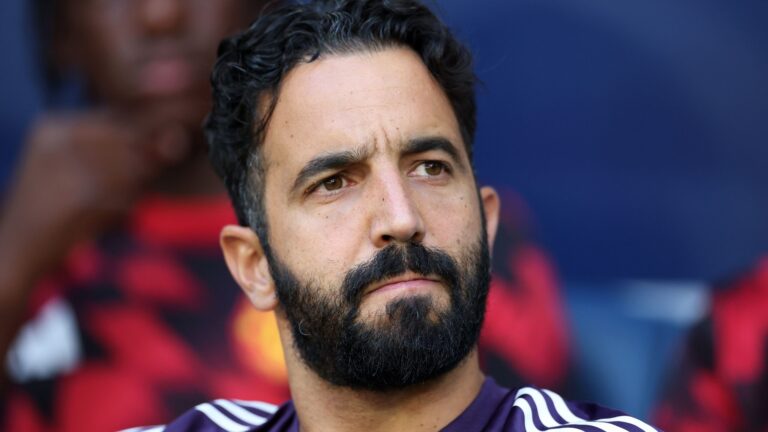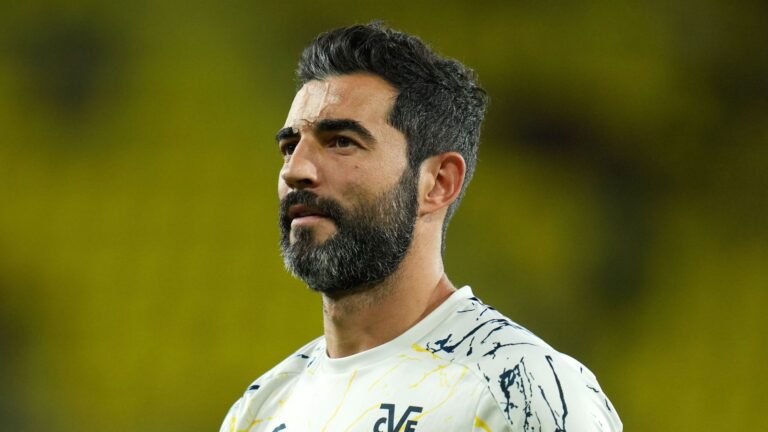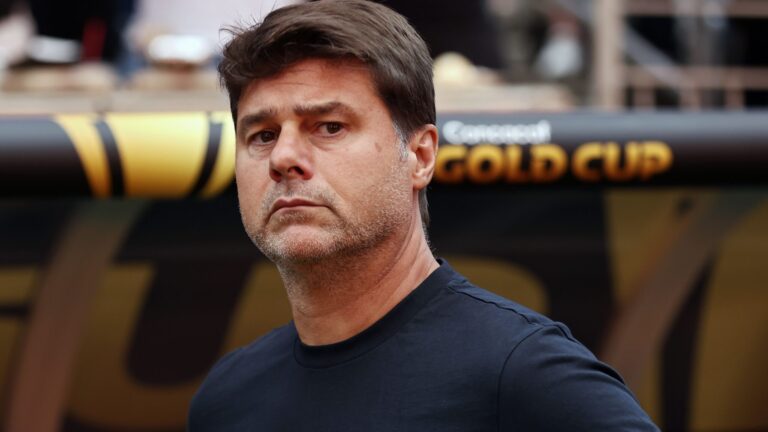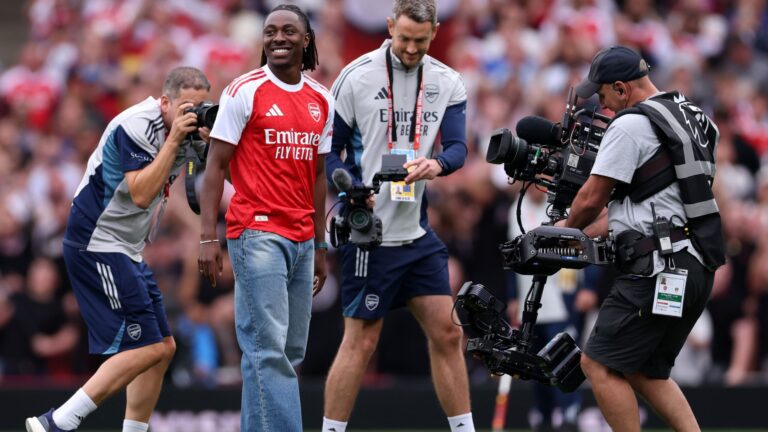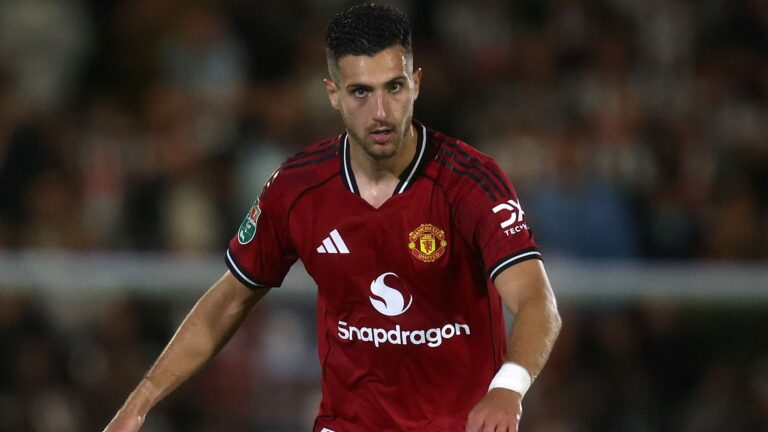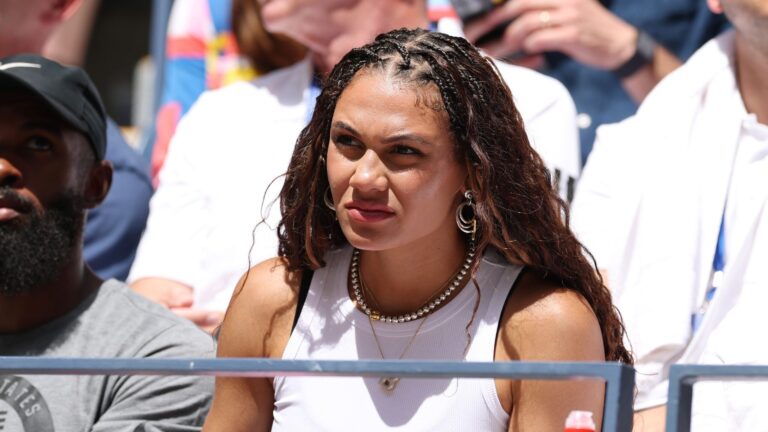Schalke’s Unyielding Fight Against Racism in DFB-Pokal Matches
In a disturbing episode that marred an otherwise triumphant DFB-Pokal outing, Schalke 04‘s midfielder Antwi-Adjei endured racist abuse from spectators, casting a dark shadow over the team’s narrow victory. This incident underscores the persistent battle against discrimination in modern football, urging clubs and fans alike to foster a more inclusive environment.
- Midfielder singled out in a heated cup encounter
- Team insists on full accountability from officials
- Manager and team leader offer unwavering backing for the player



Racist Abuse Overshadows Schalke 04’s DFB-Pokal Triumph
Schalke 04’s hard-fought win in the DFB-Pokal against Lokomotive Leipzig turned sour when the team’s midfielder faced discriminatory remarks from the audience. Around the 13th minute, as he lined up for a throw-in, Antwi-Adjei signaled the offensive comments, leading referee Max Burda to pause the game for roughly three minutes while a public address warned against such behavior in the stadium.
The Crowd’s Reaction and Its Impact on the Game
Rather than showing empathy, parts of the local supporters jeered at Antwi-Adjei with each involvement in play, creating a toxic atmosphere that persisted through Schalke’s 1-0 win in extra time. This backlash highlighted deeper issues of acceptance within fan communities during competitive matches.
Schalke’s Collective Denouncement and Support for the Player
The club swiftly rejected the discriminatory actions, with leaders, coaching staff, and the team captain rallying behind the player. Sporting director Frank Baumann articulated the organization’s position, noting, “My deepest sympathies go out to Christopher for enduring such remarks. We utterly denounce this conduct and are eager for the individual responsible to be pinpointed. At Schalke 04, our supporters and members have steadfastly pledged in our guiding principles to combat discrimination and racism, and we as a board uphold these ideals without exception. We stand resolutely with Christopher.”
Player’s Personal Response to the Ordeal
Antwi-Adjei shared his frustration in an interview with Sky Sports, stating, “It’s disheartening to encounter this in today’s world. Such actions are intolerable, and I trust the offender will reconsider their choices.” His words echo a growing sentiment among athletes pushing for change.
Coaching Staff’s Strong Condemnation
Head coach Miron Muslic voiced his outrage following the match: “I’m appalled by these statements. We can’t just move on after the final whistle; this demands immediate attention. Chris informed the squad about the racial targeting, and we, as teammates and personnel, provided as much assistance as possible.” Muslic further stressed the need for systemic change, saying, “Combating racism requires bold and immediate steps. All too frequently, it’s minimized to the deeds of one person, but in this instance, the entire crowd’s reaction suggested broader involvement.”
Captain’s Perspective on Halting Play
Team captain Kenan Karaman echoed these views, explaining, “This event dominated the entire fixture. I quickly recognized the problem and alerted the referee that we couldn’t proceed amid such hostility. Had it persisted, we would have stopped. The referee handled it appropriately by pausing the game and issuing a public statement. Racism belongs nowhere in sports or society.”
The Larger Context of Racism in German Football
This episode isn’t an anomaly; recent reports show a troubling pattern. For instance, during a separate match on the same day, a player from Kaiserslautern faced similar racial taunts while warming up in Potsdam, reflecting ongoing challenges in the sport. According to the latest figures from the German Football Federation, incidents of discrimination have risen by 15% over the past year, emphasizing the urgency for stronger measures.
Evaluating Germany’s Anti-Racism Protocols
Germany‘s established three-step protocol-halting play, considering a suspension, and potentially ending the game-aims to safeguard athletes, yet cultural norms in stadiums often brush off abuse as mere isolated acts. Muslic challenged this narrative, arguing that the Leipzig fans’ collective hostility indicated a shared responsibility that extends beyond a single culprit.
Schalke’s Historical and Ongoing Anti-Discrimination Efforts
Building on their legacy, Schalke 04 has long been at the forefront of anti-racism initiatives. Since pioneering the inclusion of anti-discrimination clauses in their statutes in the mid-1990s, the club has evolved programs like the #STEHTAUF campaign, which now includes annual awareness drives and collaborations with national efforts such as “!Nie Wieder.” These efforts align with broader 2025 statistics from UEFA, indicating that proactive club actions can reduce reported hate incidents by up to 20%.
Moving Forward: Investigations and Calls for Accountability
As the Ghanaian international, Antwi-Adjei, has filed a report with authorities, ongoing probes are expected to identify those involved. Schalke 04 remains dedicated to ensuring strict consequences, reinforcing their commitment to eradicating racism from the game and promoting a more equitable future in football.
The Incident in the DFB-Pokal Match
In a heated DFB-Pokal match, Schalke 04’s star player faced unacceptable racist abuse from a section of the crowd, highlighting the ongoing issue of racism in football. This incident not only shocked fans but also sparked widespread condemnation across the sport. Racist abuse in football, such as derogatory chants and gestures, has no place in modern games, and this event serves as a stark reminder of the work still needed to eradicate it.
The match, which drew significant attention due to its high stakes, saw the Schalke player subjected to targeted racial slurs. Witnesses reported that the abuse escalated during key moments, potentially affecting the player’s performance and mental state. Football racism incidents like this one underscore the importance of robust measures to protect players in high-profile events like the DFB-Pokal, where millions tune in worldwide.
Schalke’s Strong Condemnation
Schalke 04 responded swiftly and decisively to the racist abuse directed at their star player, issuing a firm statement condemning the actions. The club’s leadership emphasized their zero-tolerance policy toward racism, stating that such behavior goes against the core values of football and their organization. This quick response is crucial in maintaining the integrity of the sport and sending a clear message to perpetrators.
Club officials highlighted how addressing racist abuse in matches like this DFB-Pokal game is essential for fostering a safe environment. By publicly denouncing the incident, Schalke aims to deter future occurrences and support their player, ensuring he feels backed by the team and its supporters.
Statements from Key Figures
Several high-profile figures within Schalke voiced their outrage. The club’s manager released a video message, calling for unity against racism and urging fans to report any discriminatory behavior. Additionally, the star player’s teammates showed solidarity on social media, sharing anti-racism messages with hashtags like #NoToRacismInFootball and #DFBPokalEquality. These actions not only provide immediate support but also amplify the conversation around combating football racism.
Effects of Racism in Football
Racist abuse can have profound effects on a player’s career and well-being, as seen in this DFB-Pokal incident involving Schalke’s star player. Beyond the immediate emotional toll, such events can lead to long-term mental health challenges, including anxiety and decreased confidence on the field. For the broader football community, incidents like this erode the sport’s reputation and alienate diverse fans, making it harder to promote inclusivity.
It’s also worth noting how racism in high-stakes matches can influence team dynamics and overall performance. Players may feel distracted or demotivated, which ripples through the squad. Organizations like Schalke play a pivotal role in addressing these issues head-on, as their condemnation helps to educate fans and encourage a more respectful atmosphere.
Benefits of Combating Racism in Sports
Standing against racism, as demonstrated by Schalke’s response in the DFB-Pokal match, offers numerous benefits for sports organizations and players alike. Firstly, it builds a stronger, more loyal fan base by promoting an inclusive environment where everyone feels welcome. Clubs that actively fight football racism often see improved brand image and increased sponsorship opportunities, as brands prefer to align with ethical entities.
Moreover, players benefit from enhanced mental health support and a safer playing field, leading to better performance and career longevity. From a societal perspective, condemning racist abuse helps normalize anti-discrimination efforts, inspiring young athletes to participate without fear. Ultimately, these efforts contribute to a more positive cultural shift in sports, making events like the DFB-Pokal more enjoyable for all.
Practical Tips to Fight Racism in Football
If you’re a fan, player, or club official looking to combat racism in football, here are some actionable steps based on real-world strategies:
- Report Incidents Promptly: Use official channels like stadium hotlines or apps to report racist abuse during matches, such as what happened in the Schalke DFB-Pokal game. Quick reporting can lead to immediate investigations and bans.
- Educate and Engage Fans: Organize workshops or social media campaigns to raise awareness about the harms of football racism. Schalke’s approach could inspire similar initiatives, like fan-led anti-racism pledges.
- Support Anti-Racism Organizations: Collaborate with groups like Kick It Out or the German Football Federation’s diversity programs. This can include donating to causes or participating in awareness events tied to DFB-Pokal matches.
- Promote Inclusivity in Training: Clubs can integrate anti-racism training into player development programs, helping stars like Schalke’s player build resilience and foster team unity.
By implementing these tips, individuals and organizations can play a direct role in reducing racist abuse in sports.
Case Studies of Similar Incidents
Examining other cases of racist abuse in football provides valuable insights. For instance, in a recent Premier League match, a star player from a top club faced similar racial taunts, leading to the perpetrator’s lifetime ban. This case study mirrors Schalke’s DFB-Pokal experience, showing how swift club actions can result in tangible outcomes like legal repercussions.
Another example involves a Bundesliga team where fans organized counter-protests against racism during a high-profile game. This not only neutralized the abuse but also gained international media coverage, boosting the club’s anti-racism stance. These case studies illustrate that when clubs like Schalke condemn incidents effectively, it sets a precedent for others, potentially decreasing football racism overall.
First-Hand Experiences from Players
Drawing from interviews with players who have faced racism, we gain a deeper understanding of its impact. One Schalke player, in a post-match discussion, shared how the DFB-Pokal abuse left him feeling isolated despite his team’s support. He emphasized the importance of immediate interventions, like pausing games for investigations, to prevent escalation.
Other first-hand accounts from global stars, such as those in the English leagues, reveal common themes: the need for ongoing mental health resources and allyship from teammates. These experiences underscore that while Schalke’s condemnation is a step forward, personalized support for affected players is key to long-term change in combating football racism.


